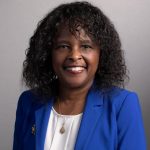Diversity, equity and inclusion (DEI) are also important priorities for us. We do not want DEI to be just a separate committee, but rather to integrate it into all aspects of the ACR. In addition to DEI, I would like to add the word ‘belonging’ to this equation. Diversity, equity and inclusion cannot be achieved unless everyone feels the ACR is a place where they can express themselves and be their authentic selves without fear of criticism or condemnation. This means incorporating the issues faced by women in the rheumatology workforce more explicitly.
Currently, 66% of our fellow applicants are women, so we need to ensure that they have access to networking and leadership opportunities, as well as any other resources they need to feel at home in the College.
The same is true for rheumatologists in private practice. We need to make sure they have the resources they need.
Overall, I hope that we can expand the ACR’s culture of belonging this year and in the years to come.
TR: What else do you see as areas that need focus in the coming year and beyond?
Dr. Desir: Ensuring the long-term financial health of the College is one of my top priorities. To achieve this, I believe we must continue to develop partnerships with industry and expand our outreach to various groups within our community. This includes private practice rheumatologists who are facing overwhelming administrative burdens, bench researchers conducting innovative rheumatology research but needing support, and non-rheumatologist physicians who play a vital role in underserved areas. By engaging a wider range of stakeholders, we can build a stronger College.
Access to care is another major concern. There are several barriers to care, such as the maldistribution of rheumatologists, and the high cost of hospitalizations and medications. The affordability of medications is a particularly pressing issue. It is heartbreaking to see patients crying on the exam table because their insurance company has denied coverage for the medication that could relieve their pain and prevent disability. We must advocate for funding for research to support the development of innovative new treatments for patients. We also must ensure that patients have access to these treatments.
As I have mentioned, many issues require our attention. We have a lot of work to do, but I am confident that we can make progress by working together.
TR: Finally, what would you like to share about yourself to help ACR members get to know their new ACR president a bit better?



